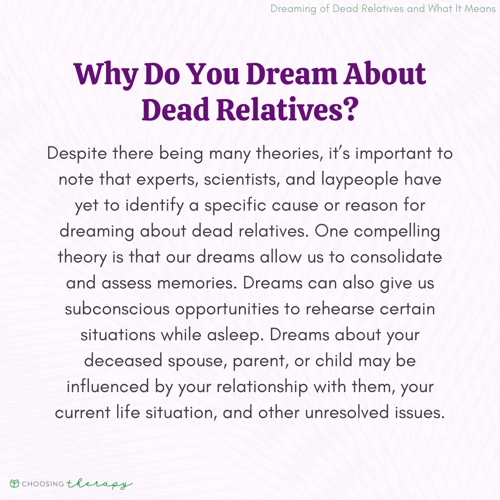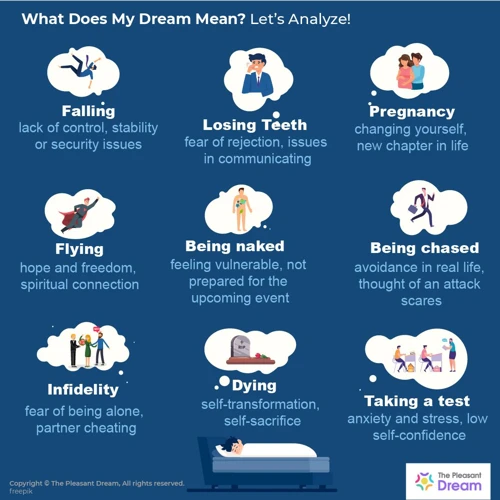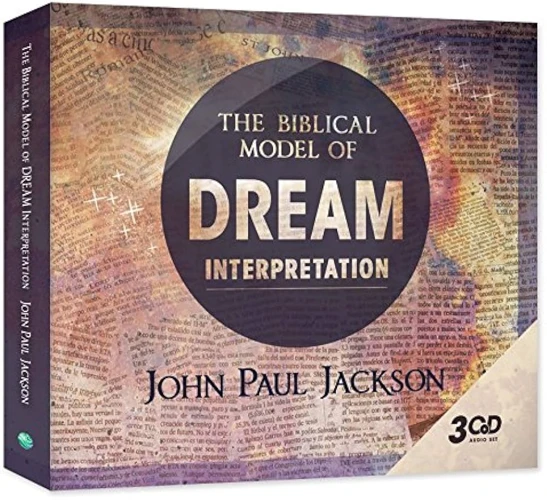Have you ever experienced a dream where a deceased loved one appeared? These dreams can often leave us feeling confused, unsettled, or even comforted. While dreams are still largely a mystery to scientists, psychologists, and spiritualists alike, they hold significant importance and meaning in our lives. In this article, we will delve into the subject of dreaming about dead loved ones and explore the interpretation of dream symbols. We will uncover the potential symbolic representation, emotional processing, and spiritual connections associated with these dreams. Additionally, we will discuss common dream symbols and methods for interpreting them, as well as the spiritual insights that can be gained from these experiences. So, join us on this journey of understanding and unraveling the mysteries of our dreams.
Understanding Dreams

In order to explore the interpretation of dreams about dead loved ones, it is important to first have a deeper understanding of dreams themselves. Dreams are complex and multifaceted experiences that occur during the REM (rapid eye movement) stage of sleep. They can be vivid, bizarre, or emotionally intense, leaving us with lasting impressions. While the purpose of dreaming is still uncertain, it is believed to serve various functions, including memory consolidation, emotional processing, problem-solving, and even creative inspiration. Dreams often communicate through symbols and metaphorical imagery, making the interpretation of their meaning a fascinating and sometimes challenging endeavor. By analyzing the importance of dream symbols and their potential significance, we can gain valuable insights into the messages our dreams are trying to convey. (Source: Dream Weaver)
1. Purpose of Dreams
– The purpose of dreams is still a subject of exploration and debate among experts.
– Dreams may serve to consolidate and organize memories, helping us retain information from our waking lives.
– They can also play a role in emotional processing, allowing us to work through and understand complex feelings and experiences.
– Dreams may provide a space for problem-solving, as our brain continues to work on unresolved issues while we sleep.
– Additionally, dreams have been a source of creative inspiration for artists, writers, and inventors throughout history.
– Understanding the purpose of dreams can provide valuable insights into their potential significance and meaning. (Source: Dreams About Spirits)
2. Importance of Dream Symbols
Dream symbols play a crucial role in understanding the deeper meaning behind our dreams. They serve as a unique language through which our subconscious mind communicates with us. These symbols can take the form of people, objects, places, or even abstract concepts. Interpreting dream symbols allows us to uncover hidden emotions, unresolved issues, and specific messages from our unconscious. The importance of dream symbols lies in their ability to provide valuable insights into our innermost thoughts and feelings. By analyzing and decoding these symbols, we can gain a deeper understanding of ourselves and our subconscious desires. (Source: Dream about Heaven and Hell)
Interpreting Dreams About Dead Loved Ones

When it comes to dreams about dead loved ones, the interpretation can be deeply personal and meaningful. These dreams often carry symbolic representation, emotional processing, and even spiritual connections. Symbolic representation is one way our subconscious mind expresses unresolved emotions or unfinished business related to the deceased. It may manifest as seeing the loved one appear in the dream, engaging in conversations, or encountering symbolic objects or places. The emotional processing aspect allows us to process grief, guilt, or even find closure and acceptance. Dreams about dead loved ones can also offer spiritual connections, providing a sense of continued love and connection beyond the physical realm. By exploring the interpretation of these dreams with an open mind and heart, we can gain insights, healing, and guidance from our subconscious minds.
1. Symbolic Representation
Dreams about dead loved ones often involve symbolic representations. In these dreams, the deceased person may appear as a metaphorical symbol rather than a literal depiction. For example, seeing a butterfly could symbolize transformation or rebirth, indicating that the dream is addressing the emotional process of acceptance and moving on. Similarly, a broken clock could symbolize the passage of time and the need to reconcile with the past. These symbolic representations in dreams provide a way for our subconscious mind to communicate complex emotions, unresolved conflicts, or unresolved issues related to our deceased loved ones. By unraveling these symbols, we can gain deeper insights into our emotions and find meaning in the messages our dreams are sending us.
2. Emotional Processing
Dreams about dead loved ones can play a crucial role in emotional processing. These dreams often serve as a means for individuals to process and cope with their grief, allowing them to confront unresolved emotions, memories, or regrets related to the deceased. The symbolism and scenarios presented in the dream can act as a catalyst for healing, providing a safe space to express and release emotions that may have been suppressed in waking life. Additionally, dreams can offer a sense of closure or resolution, allowing individuals to say goodbye or reconcile with their loved ones in a symbolic way. By providing an outlet for emotional expression and exploration, dreams about dead loved ones offer a valuable opportunity for healing and understanding.
3. Spiritual Connections
Dreams about dead loved ones can also be seen as spiritual connections. Many individuals believe that these dreams serve as a way for the departed to communicate with us from the spiritual realm. They may be viewed as visitations or messages from beyond. Some people find solace and comfort in these dreams, feeling a sense of continued love, support, and guidance from their deceased loved ones. These spiritual connections can provide healing, closure, and reassurance that our loved ones are still with us in some form. It is important to approach these dreams with an open mind and heart, allowing ourselves to embrace the possibility of spiritual connections and the comfort they can bring.
Common Dream Symbols

When it comes to dreaming about dead loved ones, there are several common dream symbols that tend to appear. These symbols can provide valuable insights into the meaning and interpretation of these dreams. One common symbol is the appearance of the deceased loved one themselves, often portraying them as they were in life or as a younger, happier version of themselves. This symbol represents a desire for connection, closure, or the need to process unresolved emotions. Another symbol is engaging in conversations or receiving messages from the deceased loved one. These interactions often carry significant emotional weight and may provide guidance, reassurance, or closure. Additionally, dreams may feature symbolic objects or places, such as a cherished possession or a familiar location, which hold personal meaning for both the dreamer and the deceased loved one. These symbols can serve as reminders of the past and may relate to specific memories or shared experiences. By exploring these common dream symbols, we can gain a deeper understanding of the messages and emotions behind dreams about dead loved ones. (Source: Dream Weaver)
1. Appearance of Deceased Loved One
The appearance of a deceased loved one in a dream can be a powerful and impactful experience. It often symbolizes a desire for closure, unresolved emotions, or the longing for their presence. Seeing them in a dream may provide a sense of comfort or even a chance to say goodbye. It is important to pay attention to the emotions and interactions during the dream to gain further insight into the underlying message. While the presence of a deceased loved one in a dream can be emotionally significant, it is essential to remember that dreams are highly subjective and can vary in meaning for each individual.
2. Conversations and Messages
Conversations and messages in dreams about dead loved ones can hold profound meaning and emotional impact. When we dream about engaging in conversations with a deceased loved one, it can symbolize a desire for closure, unresolved emotions, or a longing for connection. These dream interactions can sometimes provide comfort, guidance, or even convey important messages from the other side. Paying attention to the content and tone of these conversations can offer insight into our own emotional state and the unresolved aspects of our relationship with the deceased. These dream encounters may serve as a way for us to process grief, seek forgiveness, or find guidance in navigating life’s challenges. Reflecting on these conversations and the messages they bring can be a powerful tool for emotional healing and self-discovery.
3. Symbolic Objects or Places
Symbolic objects or places that appear in dreams about dead loved ones often hold deeper meanings and can offer insight into the significance of the dream. These objects or places may be personal to the deceased loved one or have symbolic associations with them. For example, a cherished family heirloom could represent the connection and legacy shared with the deceased. Similarly, a specific location such as a childhood home or a favorite vacation spot might evoke memories and emotions tied to the loved one. The interpretation of these symbols is highly personal and may require introspection and reflection to uncover their true significance. Understanding the symbolic objects or places in dreams can help individuals gain a deeper understanding of their relationship with the deceased and find solace or closure in the dream experience.
Methods for Interpretation

When it comes to interpreting dreams about dead loved ones, there are various methods that can aid in uncovering their meaning. One effective approach is keeping a dream journal, where you can record your dreams upon waking and reflect on their symbols and emotions. This process allows for deeper self-awareness and recognition of patterns. Seeking professional guidance, such as from a therapist or dream analyst, can provide valuable insights and interpretations from an objective perspective. Meditation and self-reflection can also be helpful in accessing the subconscious mind and gaining clarity on dream symbolism. By combining these methods, individuals can unlock the hidden messages within their dreams and gain a deeper understanding of their connection to deceased loved ones.
1. Journaling and Reflection
Journaling and reflection is a powerful method for interpreting dreams about dead loved ones. By keeping a dream journal, you can record the details of your dreams and your emotions upon waking. This helps in identifying patterns, symbols, and themes that may hold significance. Reflecting on your dreams through writing allows you to delve deeper into the messages and emotions they convey. As you revisit your journal and analyze your dreams over time, you may discover recurring symbols or themes that provide valuable insights into the meaning behind these dreams. Taking the time to reflect on your dreams can also bring about a sense of catharsis and emotional release, allowing for healing and a deeper understanding of your grief or longing for the deceased loved one.
2. Seeking Professional Guidance
When it comes to interpreting dreams about dead loved ones, seeking professional guidance can be immensely helpful. Consulting with a therapist, dream analyst, or spiritual counselor who specializes in dream interpretation can provide valuable insights and a fresh perspective. These professionals have knowledge and experience in understanding the intricacies of dream symbolism and can help to unravel the hidden meanings within your dreams. They can guide you in exploring the emotions, themes, and connections associated with your dream about a deceased loved one. By working with a professional, you can gain a deeper understanding of the symbolism in your dreams and receive support in processing any unresolved emotions or grief that may be surfacing.
3. Meditation and Self-Reflection
Meditation and self-reflection play a vital role in the interpretation of dreams about dead loved ones. By practicing mindfulness and engaging in deep introspection, individuals can access their subconscious minds and explore the emotions, memories, and unresolved issues related to their deceased loved ones. Through meditation, one can create a peaceful space to reflect on the dream symbols and uncover personal insights and meanings behind them. It allows individuals to connect with their inner selves and gain a deeper understanding of their emotions, spiritual beliefs, and the messages their dreams are trying to convey. Self-reflection, on the other hand, involves journaling, exploring emotions, and contemplating the dream experience. It helps individuals uncover underlying emotions and thoughts that may have been suppressed or overlooked in waking life, assisting in a deeper interpretation of dreams about dead loved ones.
Exploring Spiritual Insights
When it comes to dreaming about dead loved ones, these experiences often hold significant spiritual insights. Firstly, these dreams can serve as a pathway to healing and closure. Seeing a deceased loved one in a dream may provide an opportunity for emotional release, allowing us to process grief and unresolved emotions. Secondly, these dreams offer guidance and support in navigating life’s challenges. A dream involving a deceased loved one might contain messages or advice that can offer comfort and direction during difficult times. Finally, dreaming about dead loved ones can reinforce the continuation of love and connection beyond physical existence. These dreams can serve as a reminder that the bonds we share with our loved ones transcend death, offering a sense of comfort and reassurance. Exploring the spiritual aspects of these dreams can provide profound insights and a deeper understanding of the mysterious connection between the physical and spiritual realms. (Source: Dream Weaver)
1. Healing and Closure
Dreaming about a deceased loved one can provide a powerful opportunity for healing and closure. When we dream of someone who has passed away, it can allow us to process unresolved emotions, grief, or unfinished business. These dreams can serve as a way for the subconscious mind to work through our feelings and find solace. Through these dreams, we may find a sense of closure, forgiveness, or even a chance to say goodbye. It is important to pay attention to the emotions and messages conveyed in these dreams, as they can provide valuable insights and assist us in our healing journey. Seeking support from therapists, grief counselors, or support groups can also be beneficial in facilitating healing and closure when experiencing these dreams.
2. Guidance and Support
Dreams about dead loved ones can also provide guidance and support for individuals seeking direction or reassurance in their lives. These dreams may offer profound insights or advice from the deceased loved one, serving as a source of wisdom and guidance. The messages conveyed in these dreams can help individuals gain clarity, make important decisions, or find solace during challenging times. It is essential to approach these dreams with an open mind and heart, as they can offer a sense of comfort and validation, knowing that our loved ones are still present in spirit and watching over us. They remind us that we are not alone and that their love and support continue beyond the physical realm. Embracing the guidance and support provided by these dreams can bring a sense of peace and empowerment to individuals navigating life’s journey.
3. Continuation of Love and Connection
Dreams about dead loved ones can also provide a sense of continuation of love and connection. These dreams can serve as a reminder that even though our loved ones may be physically gone, their presence and love continue to exist in our hearts and memories. Through the dream experience, we are able to reconnect with them on a spiritual level, offering us comfort, solace, and a sense of ongoing connection. These dreams may provide a healing space for grief and allow us to feel the presence of our loved ones, offering reassurance and a reminder that their love transcends death. It is a powerful reminder that even though they may no longer be with us in the physical realm, their love and connection remain eternally cherished.
Conclusion
In conclusion, dreaming about dead loved ones is a complex and deeply personal experience that can hold significant meaning. These dreams often serve as a symbolic representation of our emotions, provide a means for emotional processing, and may even connect us to the spiritual realm. While interpreting dream symbols can be subjective, keeping a journal, seeking professional guidance, and practicing meditation and self-reflection can all aid in understanding the messages within these dreams. By exploring these spiritual insights, we can find healing, closure, guidance, and support, allowing the continuation of love and connection with our deceased loved ones. Dreaming about dead loved ones can be both perplexing and emotional, but it provides us with a profound opportunity to explore the realm of the unconscious mind and unravel the mysteries of our inner world.
Frequently Asked Questions
1. Why do we dream about dead loved ones?
Dreams about dead loved ones can occur for various reasons. They may be a reflection of our emotional attachment and longing for the person who has passed away. Dreams can also serve as a means of emotional processing, allowing us to explore and express our grief or unresolved feelings.
2. Are dreams about dead loved ones real visits from the spirit world?
The interpretation of dreams about dead loved ones as real visits from the spirit world is subjective and varies based on personal beliefs. Some individuals believe that these dreams provide a spiritual connection or visitation, while others interpret them as symbolic manifestations of their emotions or memories.
3. What are some common symbols that appear in dreams about dead loved ones?
Common symbols in dreams about dead loved ones include their appearance as they were in life, conversations or messages received from them, and the presence of symbolic objects or places associated with the person or shared memories.
4. How can I interpret the meaning of my dreams about dead loved ones?
Interpreting the meaning of dreams about dead loved ones requires personal reflection and consideration of the symbolism present in the dream. Keeping a dream journal, seeking professional guidance, and engaging in meditation or self-reflection can help in uncovering the deeper meanings behind these dreams.
5. Can dreams about dead loved ones provide healing and closure?
Yes, dreams about dead loved ones have the potential to offer healing and closure. These dreams may provide an opportunity to process grief, unresolved emotions, or unfinished business with the deceased. They can offer a sense of comfort, closure, and a chance to say goodbye or express unspoken emotions.
6. Are dreams about dead loved ones always positive or comforting?
No, dreams about dead loved ones can vary in tone and emotion. While some dreams may offer comfort and solace, others may evoke negative or distressing emotions. These dreams can serve as a reflection of our unresolved feelings, fears, or anxieties surrounding the loss of our loved ones.
7. Can dreams about dead loved ones provide guidance or support?
Yes, dreams about dead loved ones can sometimes provide guidance or support. These dreams may offer advice, reassurance, or messages of love and encouragement from the deceased. They can provide a sense of guidance or direction during challenging times.
8. Are there any specific techniques to enhance dream recall?
Yes, there are techniques to enhance dream recall. Keeping a dream journal by your bedside and writing down your dreams as soon as you wake up can help improve your dream recall over time. Creating a relaxing bedtime routine, practicing mindfulness, and getting enough quality sleep can also contribute to better dream recall.
9. Why do dreams often feel so vivid and real?
The vividness and realism of dreams can be attributed to various factors. During REM sleep, the brain is highly active, creating complex sensory experiences that can feel incredibly lifelike. Additionally, the emotional intensity and the focus of our attention during a dream contribute to the perception of vividness.
10. Can interpreting dreams about dead loved ones offer comfort or closure?
Yes, interpreting dreams about dead loved ones can offer comfort and closure. By understanding the symbolic representation of the deceased loved one in the dream, individuals can gain insights into their own emotions, thoughts, and desires related to the loss. This understanding can aid in the healing process and provide a sense of closure.







